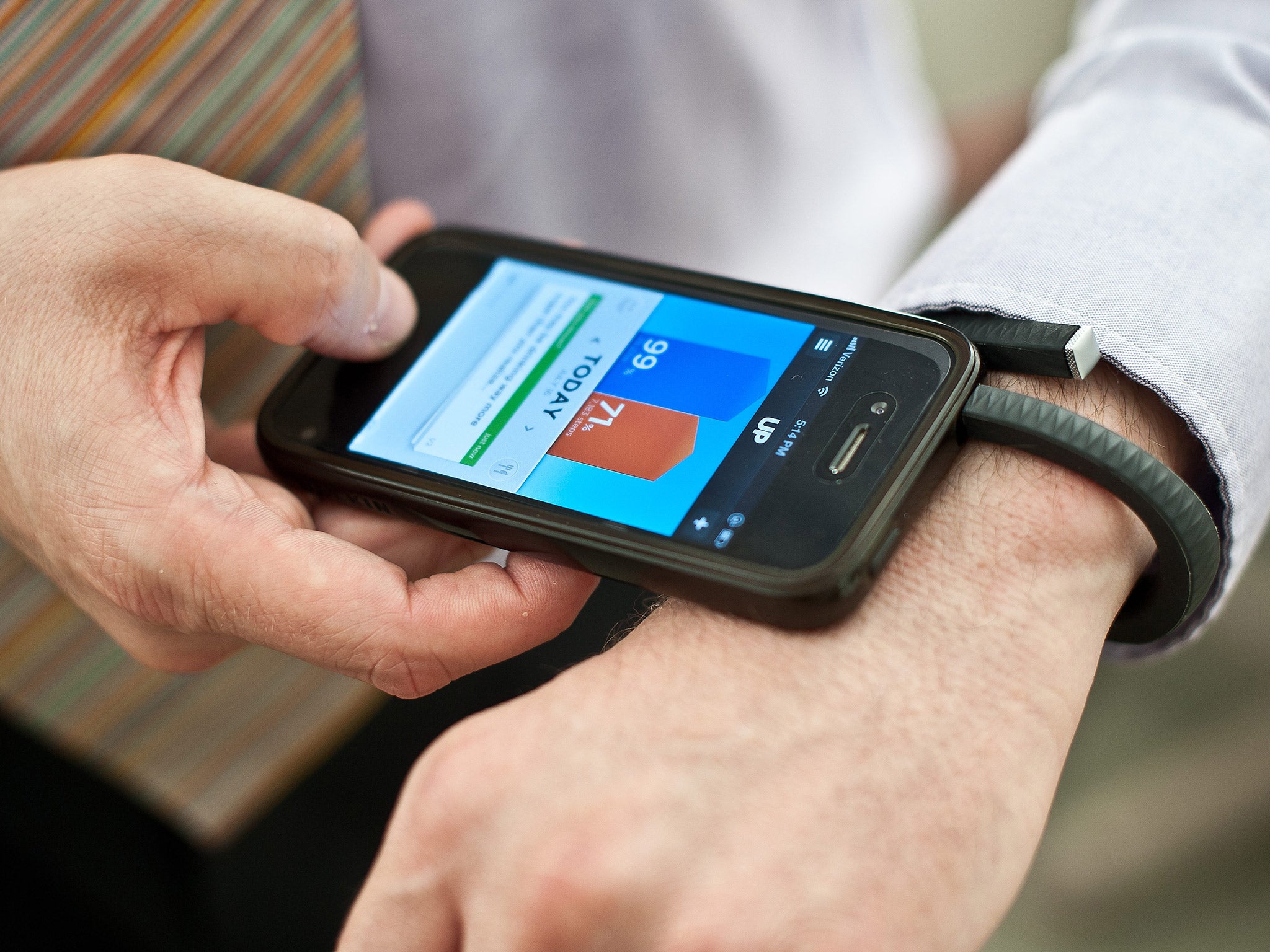Fitness apps don't improve health - and could be harmful

They are the latest health and fitness ‘revolution’, beloved of the fad dieters and the pilates obsessives – not to mention some of our leading politicians.
But what use, really, are increasingly popular health apps like Fitbit and Jawbone that monitor our activity levels, heart rate and even sleep patterns? None at all, according to one leading GP – and they could even end up doing harm.
Writing in the BMJ, Glasgow GP and health commentator Dr Des Spence warns that the products, which increasingly include wearable devices that link to computers and smartphones, providing 24-hour health monitoring, are “untested and unscientific” and could ignite “extreme anxiety” in a new generation of the “worried well”.
Warning that such apps could soon be “ubiquitous”, Dr Spence said that devices that could offer perpetual health monitoring risked giving rise to ‘over-diagnosis’ of health problems, with people unable to distinguish harmless variation or faulty readings from genuine signs of ill health.
“The truth is that these apps and devices are untested and unscientific, and they will open the door of uncertainty,” he writes. “Make no mistake: diagnostic uncertainty ignites extreme anxiety in people. We must reflect on what we might lose here, rather than what we might gain.”
Thousands of health apps are now available and some are even endorsed by the NHS.
George Osborne raised eyebrows when he was seen wearing one – a Jawbone ‘UP’ wristband – at a committee hearing two years ago. It is unclear whether the device played an important part in the Chancellor of the Exchequer’s subsequent weight loss, but he did confirm at the time that former Education Secretary Michael Gove was also using one.
Despite their rising popularity, there is no evidence that smartphone-connected health apps can actually improve health, although two randomised trials of weight loss apps for old-style ‘handheld PC’ devices did show they worked better than paper or web-based fitness programmes.
Not all doctors are convinced health apps are a cause for concern. Also writing in the BMJ, Iltifat Husain, assistant professor of emergency medicine at the Forest School of Medicine in North Carolina, USA, said that apps which encouraged more exercise and a better diet could well carry benefits.
He said that while tests of Fitbit and Jawbone devices had not found evidence they could improve health outcomes or exercise compliance, there was also no evidence they could do harm.
“Healthy people may well benefit from using some health apps…but doctors need to be proactive about telling people which metrics matter and which apps they should buy,” he writes.
Subscribe to Independent Premium to bookmark this article
Want to bookmark your favourite articles and stories to read or reference later? Start your Independent Premium subscription today.

Join our commenting forum
Join thought-provoking conversations, follow other Independent readers and see their replies